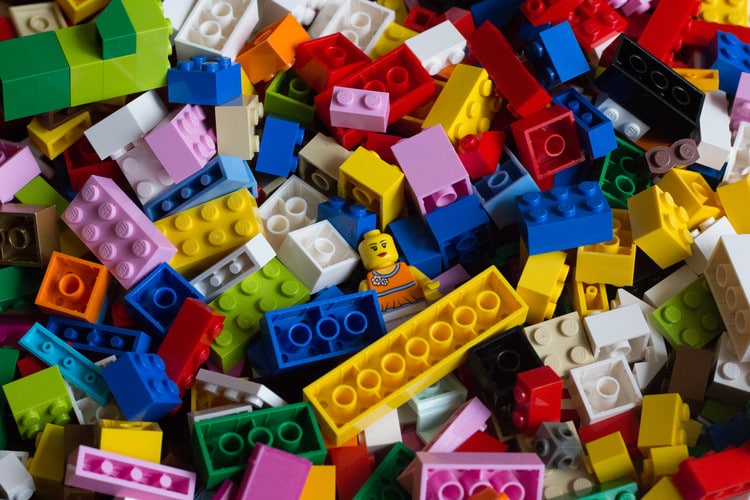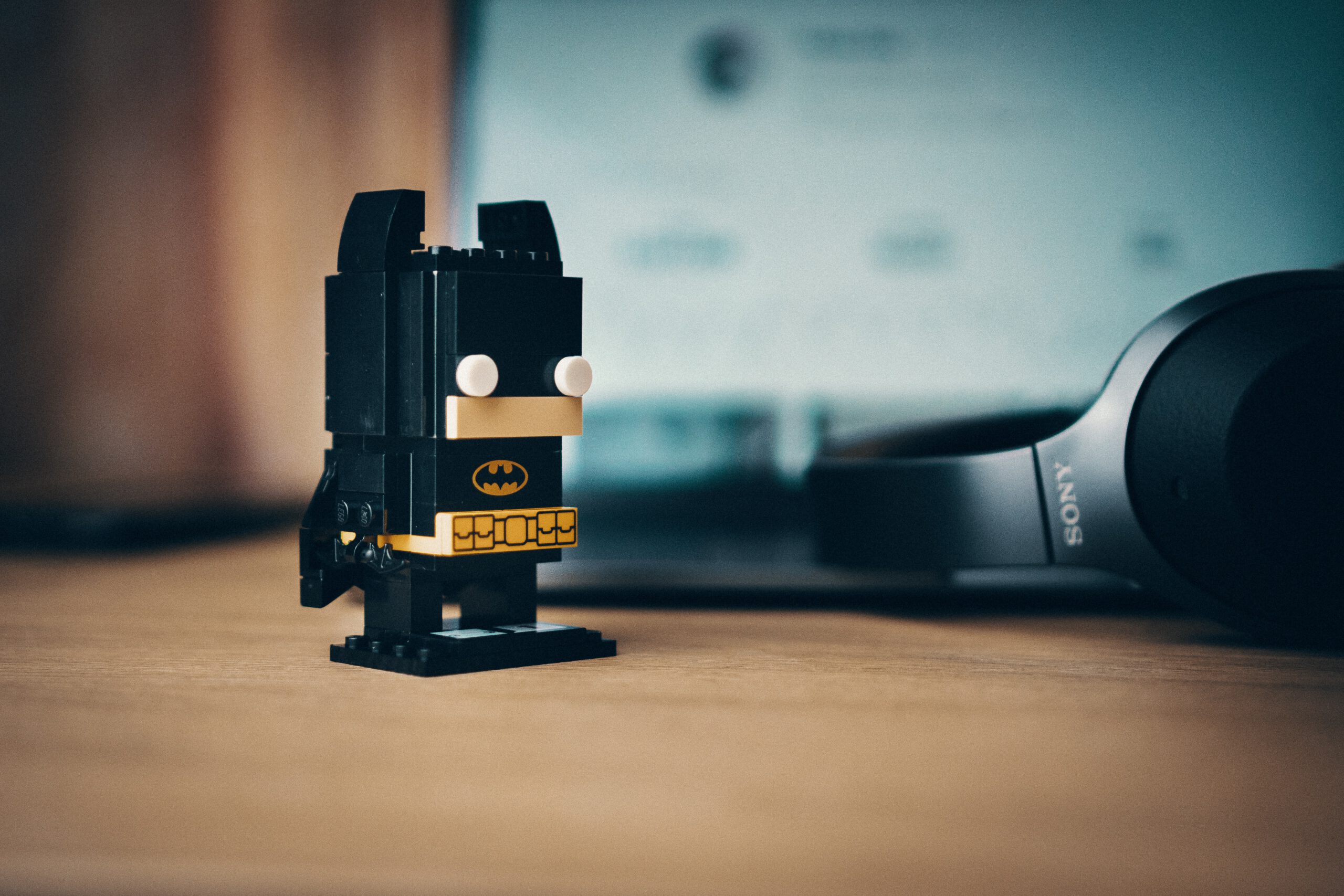Let it go – digital clutter
Apart from dresses and shoes, I don’t like to own much stuff; I prefer to have only things that relate to who I am as a person, and I can easily detach emotionally and get rid of things.
Reading and watching Fight Club was one of my eye-openers here, and I can never forget the very famous quote:
The things you own end up owning you
By no means am I a minimalist; I don’t count my things, nor do I raise the question, if a pair of socks is 1 or 2 items or if a complete drumset is 1 or 21 or 68 items. I do not find value in those discussions. But I think it’s worth investigating the impact of things in my life. And when I do so, I realize that apart from the things I have and heavily use, there is also clutter, AKA stuff.
What is stuff?
Stuff is every item that you keep for the sake of having it. Perhaps it served a purpose when you bought it, found it, or when someone gave it to you, but now you don’t have any use for it any more than just owning it. Some examples?
- the ugly mug that was a present from a college friend – you keep it because it reminds you of that friend. Last contact? 14 years ago.
- the nice mug that doesn’t fit all your other mugs, and you stopped drinking coffee – last use of that mug? Well, you first needed to dust it off…
- the books you bought that only serve as a credibility bookcase for your Zoom calls
This list could be a lot longer, but I will leave it by that as I think you got the idea of what I am talking about.
negative impact of hoarding
Technically, we know that clutter isn’t good for us. Clutter, both analog and digital, keeps our space, money, energy, and focus. It draws our attention from the things we want to DO to the things we HAVE. While a bit more space makes up room for new experiences and where we want to grow, a full space makes change and growth impossible as all areas are already occupied. Clutter shifts our drive from acting and growing to having and hoarding. And this represents living in the past or unrealistic mental images of yourself:
- You own a lot of sports gear but don’t exercise with them regularly? Then you just fell in love with the idea of being a sporty person, but you aren’t sporty.
- You have a whole collection of musical instruments but never play them? Then it is more your idea of being a musician that you like to become a reality than it represents who you are.
- Is your bookshelf full of books you never read? Well, still a great scene for your virtual meetings, but other than that: You fill up space in your surroundings to fill the void inside of you.
As clutter takes much space, there is less space for the things you love, which truly represents who you are. Why do we give things that don’t relate to our lives so much room?
Why do we keep everything?
Just in case. In case of what? In case we need it.
Although most of us grew up in the great luck of not having to experience any deficiency or lack of things they desperately needed; still we were raised with some beliefs, like ‘keeping stuff even for unlikely events is a good thing.’ We even have dedicated rooms in our houses for ‘stuff that we don’t regularly use’ like attics and basements. Storage room seems to be a significant advantage, even bigger than having room for yourself. All this represents your past, which you still want to hold in your hands. I am not talking about precious memories like family photos or practical things you need and use a few times a year (like a waffle maker or a drill). I am talking about the stuff we keep because something in us isn’t ready to let it go: We keep stuff:
- for ourselves (in case I ever fit again into that jeans from 1992) –> represents an unrealistic mental image of yourself and shows that you didn’t let go of what’s already past
- for others (these baby clothes will someday be for a kid in my extended family) –> projection
- when we can’t admit that we failed in doing something (in case I restart to play chess which I lastly did in 1992 (you know, when that jeans fit))
- to remind ourselves that we didn’t always suck but also achieved some cool things (keeping that trophy of the 3rd place at the Junior District Championships)
- because we fear deficiency
- to impress others (bookshelf/zoom calls)
- to impress ourselves (mostly related to things we would like to do but don’t execute)
And yet again, a Fight Club quote comes to my mind: We buy things we don’t need with money. We don’t have to impress people we don’t like.
You will probably say: But I don’t care about the stuff in the basement, about the things I keep for others, or about the 691 little things in drawers (your cable box? your lonely socks? your old phones?). Then I need to tell you that
- you just learned to ignore stuff, but it still impacts you whether you like to admit this or not
- whatever you ignore will somewhen return and miscue you, so it’s better if you care.
the perverted approach
Our idea is no longer ‘having something to do something with it,’ but ‘having something until it bothers me so much that I need to get rid of it.’ And we do a lot not to get bothered. We buy new shelves, new drawers. And then we buy decorations because the new stand looks so empty. And then we buy another rack, because all the decoration doesn’t fit anymore. And then we move into a bigger house. And we need a bigger basement, because of the stuff we need to outsource, and then we rent a storage room outside of the city… Or we build a carport, so that more stuff fits into the garage after the car moved out of it. Even if you didn’t need to buy new stuff to give other stuff a place to be, you would see that stuff seeks your time and attention. Every item needs a place to belong to (or you will be busy putting it from left to right and from right to left again), and it needs to be cleaned and maintained. Having a thing is always a commitment. Before I buy something, I do not only think if I can afford this, but how much time it will take me to act according to its purpose. Buying a book is easy, but how likely will I spend 10-20 hours in the next three months on reading it?
digital stuff
This brings me to some thoughts about stuff that doesn’t take much physical space but still increases our mental load. Enrolling a new course to learn something? Wow, it’s free. CLICK HERE. Yes, subscribe to the newsletter. How likely is it that I will not only not read this newsletter but also defer unsubscribing from it? How often will this draw my attention while it’s already hard for me to stay focused? How likely will I not just watch the intro of the new course? And how probably will this book, course, podcast end up in that pile of guilt? There are more examples:
- the app you never use
- the accounts that announce their blog posts on Twitter, I do not remember you finding time to read
- your 42 open tabs (but!)
- 16 variations of the same photo
- your email trashbin
- chats with your ex
- abandoned side projects
How do we declutter
This shouldn’t be a full list of where you can find clutter on your phone or computer. But once you are aware of WHY you unhealthily keep stuff, you will more easily recognize where you waste space and focus. Apart from the examples that I already gave you, it could be that
- – you still have a lot of Bluetooth devices in the list that you don’t use anymore,
- – you follow too many accounts on social media to follow what they post,
- – you have contacts in your contact list you don’t even know who that is
You will find many how-to blog posts once you start to google ‘digital clutter’, but the key is to understand what triggers you to collect more and why it is hard to let things go: I am on my phone a lot. Some would say that I have a deep relationship with it. If you are a little like me, you will merely not use it as a phone, but as a remote control for your whole life (and with a remote control for the remote control aka Apple Watch. We quickly have 100+ apps installed, and because we need to record 4k video, have thousands of songs on our phones, and hoard all kinds of other data, we need phones with an insane storage capacity. And now that we have that capacity, we hoard even more. And then we pay cloud services to outsource apps and files… Do you recognize a pattern? We repeat the behavior we show in our analog lives in our digital lives. So would it help if we asked ourselves why we keep the digital stuff? Why do we not delete chats of people we are not in contact with anymore? Why do we still maintain that domain we once registered but then never worked on it again? Same reasons as you keep physical stuff: JUST. IN. CASE.
Not that this case will EVER occur, though.
What happens once we dig a little bit deeper into what triggers us to keep and hoard? We will gain clarity about what drives us- and what holds us (back). Because, if we own everything, our hands aren’t free, we can’t hand-le anything anymore, literally. The perfidy of digital clutter is, though, that we can more easily hide it. But once we know if we want to impress ourselves, still live in the past, or want to produce a specific image of ourselves, it’s easier to get rid of that, be honest, and truthful with ourselves. It’s relieving to toss stuff that weighed a lot. And once you did, you feel alleviated and calmed.
Where do I start?
Well, I am a consultant, so the answer needs to be It depends. Here are some tips:
- Don’t just organize apps on your phone in groups.
- Ask yourself, which value an app, a contact, a chat, a connection still offers you. And if this is about lost hopes or reality.
- What’s the worst-case scenario if you delete something?
- this blog post is the first of a small series of posts around digital clutter. Read next week, how I tame my alerts and notifications
Feedback & What’s next
If you liked this post, leave a comment and tell me what resonated the most to you. How do you deal with digital clutter? Does it bother you? Do you have the feeling that stuff consumes too much of your attention? T I would love to hear your feedback.
You May Also Like
my 2020 or jumping into the next rabbit hole
2020-WHAT. A. YEAR. This was a special one for me, like for so many of us. When we were still traveling and making big plans in the first weeks of 2020, no one had a clue that we all would be sitting …
How to avoid overcommitting
Intro Besides my work as an independent consultant and low code developer, I do a lot of community work. I am an active Microsoft MVP, new member of the PnP team, run a blog, am a speaker at …
Please don’t “hello” me! Why “hello” in Microsoft Teams isn’t polite!
I recently stumbled over nohello.com and aka.ms/nohello, which refers to https://github.com/sbmueller/nohello/blob/master/index.md#please-dont-say-just-hello-in-chat by https://sbmueller.github.io/. …




